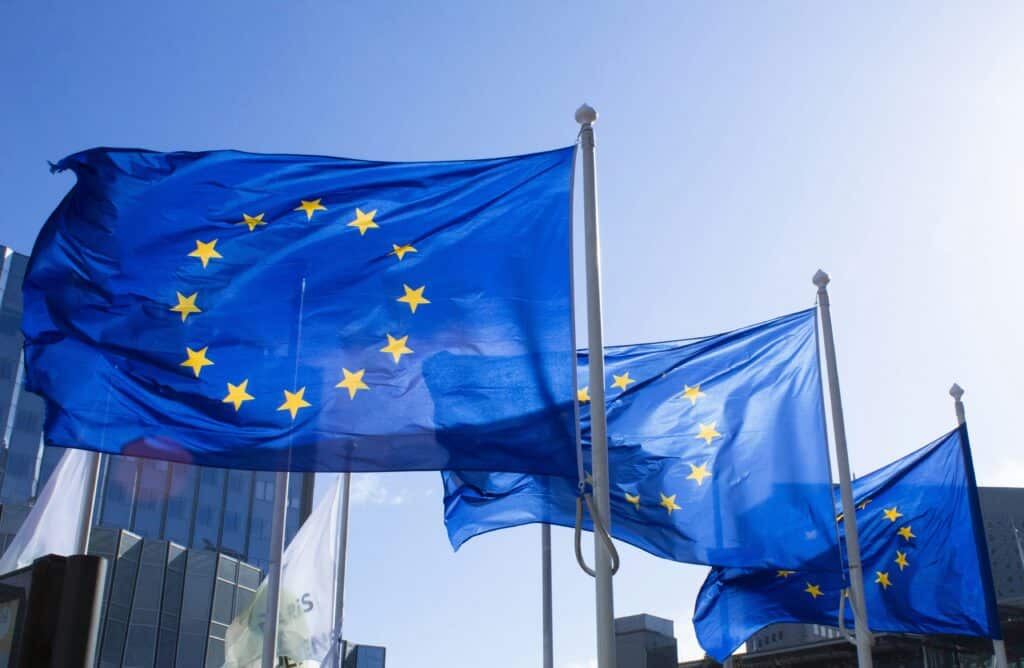Clean hydrogen should be more competitive than its alternatives
Highlights from the online debate: Are hydrogen technologies ready for accelerated deployment?
Are renewable and low carbon hydrogen technologies ready for accelerated deployment? – Highlights
In the online debate hosted by C. Jones and A. Piebalgs on 20 January 2021, we focused on the recent developments of renewable and low carbon technologies. Barbara Jinks (IRENA), Kess van der Leun (Guidehouse), Jorgo Chatzimarkakis (Hydrogen Europe), and Ronnie Belmans (KU Leuven) contributed to the debate, addressing the substantial challenges facing a broad hydrogen deployment.
Main takeaways from the event
Renewable hydrogen costs could go down to EUR1.6 per kilogram before 2030.
Substantial cost reduction is achievable by a substantial reduction in electrolyser costs (also increasing their efficiency and lifetime) and renewable electricity costs (less than EUR20 per Mwh). The preconditions for this are technical innovation, learning from practical experiences, module design, manufacturing scale-up.
European Clean Hydrogen Alliance is a unique vehicle to drive down the costs of clean hydrogen.
Over one thousand companies have joined the Alliance. The entire value chain of clean hydrogen is covered. The alliance could substantially accelerate demand and supply and by scaling-up to bring down the costs.
A perspective towards developing a well-connected European hydrogen market makes an important contribution for scaling-up the clean hydrogen production.
By 2030 the dedicated hydrogen infrastructure could be 6800 km long connecting “hydrogen valleys”. Only 25% of this “European Hydrogen Valley” will be new pipeline stretches, the rest will consist of converted natural gas pipelines.
Clean hydrogen use should be prioritised for hard to abate applications – aviation, maritime transport, and industrial processes.
Even with very a positive development of clean hydrogen costs, electrification and energy efficiency provides the most efficient way of the decarbonisation of energy end-use.
#FSRDebates on Policy
Started in January 2020, this series is a monthly appointment on policy issues, hosted by Christopher Jones and Andris Piebalgs.
More on #Hydrogen
Topic of the month
- Hydrogen demand: several uses but significant uncertainty
- ‘Clean Hydrogen’ in the global energy transition – any sign of an international market? | May 19, 2020
- What is renewable gas? | Mar 14, 2018
Publications
- STUDY | Cost-effective decarbonisation study by A. Piebalgs, C. Jones, P. C. Dos Reis, G. Soroush, J.M. Glachant
- POLICY BRIEF | A proposal for a regulatory framework for hydrogen guarantees of origin by Andris Piebalgs,Christopher Jones | 02 November 2020
- TECHNICAL REPORT | Green hydrogen : bridging the energy transition in Africa and Europe by Swetha RaviKumar Bhagwat, Maria Olczak | 20 October 2020
- TECHNICAL REPORT | Hydrogen technology : workshop summary by Cekovic Ivana,Ilaria Conti, Christopher Jones, Andris Piebalgs | 10 July 2020
Event highlights
- The regulation of hydrogen infrastructure: set to be a vintage year? | Oct 2, 2020
- Technologies of the energy transition: the current policy landscape for hydrogen | Jun 24, 2020
- Highlights from the Hydrogen Workshop Series | Jun 16, 2020
- How many gas markets? | Dec 6, 2019
Past events
-
Hydrogen technologies and costs: findings from the FSR study | Dec 2020
- What do we know about the costs of EU decarbonisation? | 11 Nov, 2020







